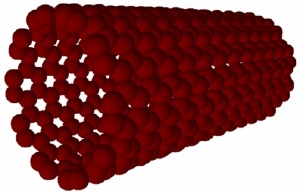The specialist product development consultancy, Bio Nano Consulting (BNC) is pleased to announce that it has recently signed its largest contract to date with a major chemical company. BNC has secured this contract as a result of unique intellectual property developed at its partner institutions of Imperial College and the London Centre for Nanotechnology. The 12 month project aims to provide a consistent system for the separation of single walled carbon nanotubes (SWNTs) based on their electrical properties for improved micro-electronic performance. The work by BNC will develop the processes to a sufficient maturity to allow the client to license and further commercialise the technology.

The separation of SWNTs with well-defined chirality is the ‘holy grail' of nanotube science and the development of better manufacturing and process techniques is vital to the future of carbon nanotechnology. Possible applications for Metallic SWNTs are indium tin oxide (ITO) replacement, electromagnetic interference (EMI) shielding, electrodes, field emission devices and transmission cables. In contrast, semiconducting nanotubes could be used in applications such as nanoelectronics, sensors, non-linear optical (NLO) devices, active components in photovoltaics, organic electronics, printed electronics and thin film transistors.
Delivering innovative solutions to industry across the life-science and technology sectors, BNC are able to effectively address real-world problems with nanotechnology based solutions. "With our traditional focus being the pharmaceutical, medical and bio-tech industries, we are delighted to have signed our second contract looking at advancing electronic technologies." commented Dr David Sarphie, CEO of BNC. He continued, "It is great news that our world-class technology and expertise has successfully extended across into this critical sector."
The BNC is a specialist research and development consultancy operating in the convergent field of bionanotechnology. A joint venture of Imperial College London and University College London, the BNC is funded through the Technology Strategy Board (TSB) with additional support from the London Development Agency (LDA).
Along with its partner organisation, the National Physical Laboratory, the BNC offers a service to the biomedical and healthcare industries in microsystems and nanotechnology. This encompasses design, 3-D modelling and visualisation, rapid prototyping, and characterisation.